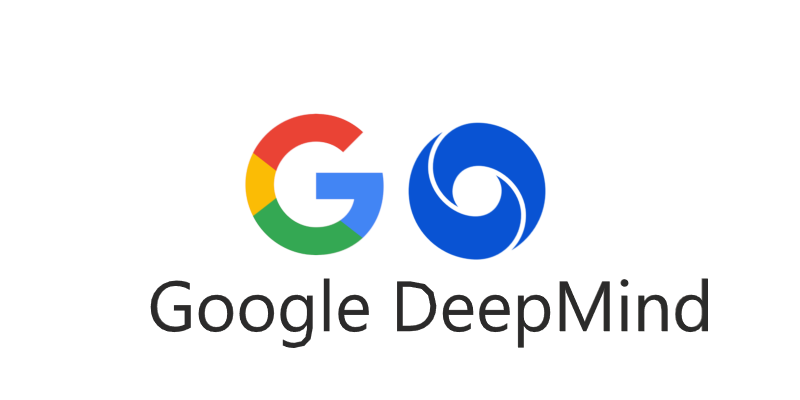
At the intersection of cutting-edge technology and ethics lies a growing storm brewing within Google DeepMind. Recently, over 100 employees have voiced their outrage regarding the company’s involvement in AI military contracts. This controversy raises important questions about the role of advanced artificial intelligence in warfare and how it aligns with the values held by those who create it.
As debates heat up around responsible innovation, many are left wondering: what does this mean for the future of both Google DeepMind and its workforce? The unfolding drama shines a light on employee dissent, corporate responsibility, and the ethical implications of weaponizing AI. With tensions running high, let’s dive into this complex issue to better understand what’s at stake for everyone involved.
Google DeepMind and their involvement with AI military contracts

Google DeepMind, a leader in artificial intelligence research, has recently stepped into controversial territory with its involvement in military contracts. This partnership aims to develop AI technologies for defense applications, pushing the boundaries of what machines can achieve.
While some view this as a necessary evolution for responsible AI deployment, critics argue that it compromises the integrity of technological advancements. The push towards enhancing military capabilities raises ethical dilemmas about the potential consequences of these innovations on global security and human welfare.
DeepMind’s collaboration signifies a shift from purely academic pursuits to practical implementations that could have devastating effects if misused. As these projects unfold, questions linger about accountability and transparency within such partnerships. Employees are left grappling with their company’s role at this pivotal juncture in AI development.
Overview of the controversy surrounding these contracts

The controversy surrounding Google DeepMind’s involvement with AI military contracts has sparked intense debate. Critics argue that integrating artificial intelligence into military operations could lead to ethical dilemmas and unintended consequences.
Concerns have been raised about the potential for autonomous weapons systems making life-and-death decisions without human oversight. Such technologies may exacerbate conflicts rather than solve them, raising questions about accountability in warfare.
On the other side, proponents believe that advanced AI can enhance national security by improving strategic capabilities. They argue it could minimize risks to human soldiers while achieving critical missions.
This clash of perspectives highlights a deeper societal struggle over the role of technology in warfare. As discussions unfold, many are left wondering whether innovation should ever cross paths with military ambition. The ramifications extend beyond corporate profits and touch on moral implications for humanity as a whole.
Employee reactions and protests against these contracts

The announcement of AI military contracts sent shockwaves through Google DeepMind. Employees voiced their concerns almost immediately, sparking a wave of protests within the company.
Many team members took to social media platforms, sharing personal stories and ethical dilemmas surrounding their work. They expressed feelings of betrayal—arguing that AI should be used for humanitarian purposes rather than warfare.
At various company events, employees wore protest badges and organized peaceful rallies outside headquarters. Their chants echoed a shared belief: technology should foster peace, not destruction.
Key figures in the organization also joined the outcry. Prominent researchers released open letters demanding transparency around these projects. The call was clear; they wanted to ensure that their expertise was not contributing to violent conflicts or loss of life.
As tensions mounted, discussions about workplace ethics intensified across all levels at Google DeepMind.
Arguments for and against Google DeepMind’s involvement in military projects
Supporters of Google DeepMind’s involvement in military projects argue that advanced AI can enhance national security. They believe these technologies could streamline operations and improve decision-making processes. The potential for saving lives by predicting threats is a significant selling point.
On the flip side, critics raise ethical concerns. They fear that developing AI for military use opens doors to autonomous weapons systems with little human oversight. This could lead to unintended consequences, including civilian casualties and escalated conflicts.
Moreover, many argue that collaborating with the military undermines the core mission of advancing technology for humanity’s benefit. Employees feel torn between innovation and moral responsibility, leading to intense debates within the company about its direction moving forward.
Impact on the company’s reputation and employee morale
The controversy surrounding AI military contracts has significantly impacted Google DeepMind’s reputation. Employees are increasingly questioning the ethical implications of their work. Trust in leadership is wavering as many feel their values conflict with company decisions.
Employee morale has taken a hit, too. Those who once felt proud to be part of an innovative tech giant now grapple with feelings of disillusionment and frustration. Protests and walkouts reflect this underlying unrest, showcasing a divided workforce.
As public scrutiny increases, potential recruits may hesitate to join the ranks at DeepMind. The allure of cutting-edge technology innovations could diminish if associated with warfare applications.
How Google DeepMind navigates this situation will determine its standing in both tech circles and broader society. The balance between innovation and ethics remains fragile, making every decision crucial for the future landscape of the organization.
Alternative solutions for handling AI in military contexts
Exploring alternative solutions for AI in military contexts is essential. One approach could be prioritizing ethical guidelines. Establishing frameworks that ensure responsible AI use can help mitigate potential harm.
Collaboration with neutral organizations may also offer fresh perspectives. By working alongside humanitarian groups, tech companies can align their developments with global peace efforts.
Another option involves transparency in AI projects. Open dialogue about the algorithms and technologies being used fosters trust among employees and the public alike.
Investing in civilian applications of AI might provide a balanced route as well. Focusing on areas like healthcare or disaster response showcases technology’s positive potential without crossing moral lines.
Engaging diverse stakeholders—including ethicists, technologists, and community leaders—can create more comprehensive strategies tailored to societal needs while addressing security concerns effectively.
Conclusion and potential future developments
The response from Google DeepMind employees highlights a significant rift between technological advancement and ethical considerations. A substantial number of workers are voicing their concerns, emphasizing the moral implications of AI applications in military contexts. This growing unrest among Google DeepMind Employees is a clear signal that many individuals within the company prioritize ethical standards over profit or innovation at any cost.
As discussions unfold, it raises questions about the future trajectory of AI development. Will companies like Google DeepMind pivot away from military contracts? Or will financial incentives continue to overshadow ethical dilemmas? The dialogue surrounding these issues is crucial for both corporate responsibility and public trust.
Looking ahead, alternative approaches may emerge that allow for the integration of AI in defense without compromising core values. Emphasizing transparency might help bridge gaps between tech firms and concerned stakeholders. Balancing innovation with humanity’s best interests could become a guiding principle as we navigate this complex landscape.
The road forward remains uncertain but promises to be filled with important conversations that shape not only technology but society as well. How companies respond today will likely influence both industry practices and employee morale long into the future.
Visit QAWire for more tech world updates.


